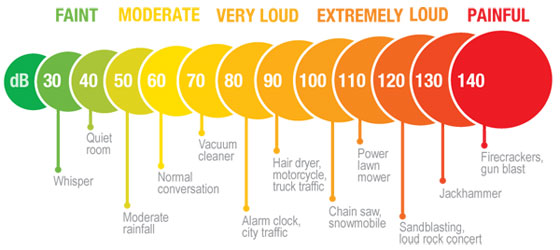Although this 4th of July weekend may be different from summer celebrations in the past, we still want everyone to remain as safe as possible. Whether it’s keeping your friends and family safe by social distancing, wearing a face mask, or protecting your hearing while around fireworks, there are actions each of us can take to protect our all around health.
As you prepare to celebrate Independence Day, we’d like to offer some noise facts and hearing health tips for your consideration while you enjoy your outdoor celebration.
Fireworks are a part of the celebration that we look forward to enjoying. Just remember that hearing damage can occur as a result of exposure to loud noise. Even though the blast may be brief, fireworks are capable of producing the same level of noise as a jet engine, ranging between 125-155 decibels (dB). Any noise above 85 dB can cause damage, so close exposure to fireworks can cause hearing loss almost immediately.

We hear sound when delicate hair cells in our inner ear vibrate, creating nerve signals that the brain understands as sound. But just as we can overload an electrical circuit, we also can overload these vibrating hair cells. Loud noise damages these delicate hair cells, resulting in sensorineural hearing loss and often tinnitus (ringing in the ears). The cells that are the first to be damaged or die are those that vibrate most quickly—those that allow us to hear higher-frequency sounds clearly, like the sounds of birds singing and children speaking.
There are ways to enjoy a fireworks show without causing permanent damage. First, it’s best to leave the fireworks to the professionals while keeping a comfortable distance to enjoy the colors and lights. If you are unsure how loud the fireworks may be, or if you are not able to enjoy from a distance, bring along disposable earplugs to wear throughout the event. Earplugs must fit snuggly to adequately block excessive noise, so carefully read the instructions on the earplug packaging. Earplugs are an inexpensive and easy way to protect fragile areas in our inner ear.
If you are exposed to hazardous noise this holiday and are worried about your hearing health, take note of the warning signs of hearing loss:
Luckily, there are ways to check your hearing online and find a professional near you to consult about your hearing and conduct a comprehensive hearing test.
Have a safe and wonderful 4th of July!